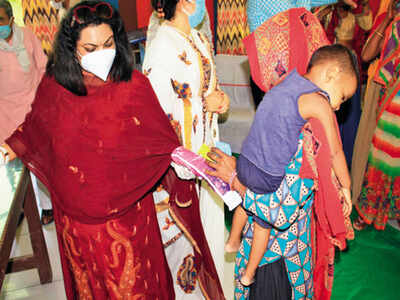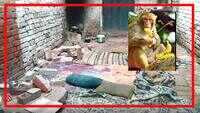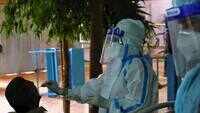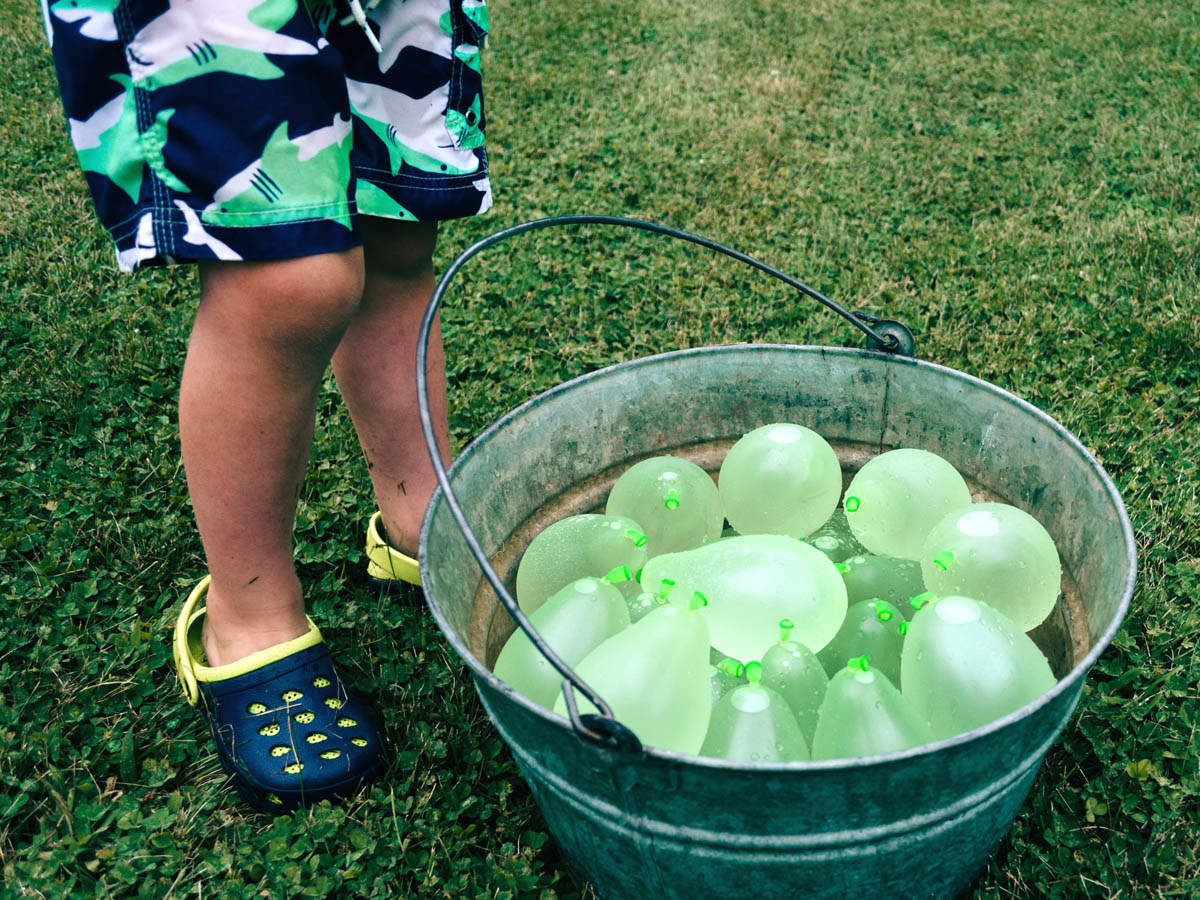
LUDHIANA: An IRS officer from Ludhiana has turned into a 'pad woman' for about 10 lakh women across India who did not have access to sanitary pads during the lockdown.
Born and brought up in Ludhiana, a 2010 IRS batch offcer Aman Preet has reached out to women with the help of various social organisations, NGOs and good Samaritans.
Currently posted in Delhi as joint commissioner of income tax, Aman Preet found out that almost 50% of the women did not use pads .
Though this initiative, Aman Preet has made people realise that pads are as essential as food and masks as periods don't take a break in the pandemic.
Recently, with the help of a social organization, 'Sangini Saheli', which is run by her fashion designer friend Priyal Bhardwaj, Aman Preet joined hands with world's largest covid care facility in Delhi, Chattarpur, to provide supply of pads to women patients.
Speaking to TOI about her initiative, Aman Preet said, "We faced different problems in our campaign, right from people refusing to distribute pads saying, ' yeh gandi cheez hum nahin baant sakte', to people even refusing to take ration if sanitary napkins were given along with it."
"Sometimes women said they need to take permission from her husbands and in-laws to buy this, some women taking the supplies for their daughters told us 'didi yeh mehngi cheez hai, bachi use kar legi, mere liye kapda hi theek hai'. They also shared of how they were using discarded clothes during the periods."
A majority of the cost of this drive has been borne by Aman herself, along with her friend Priyal Bhardwaj of Sangini Saheli trust and several good Samaritans. Besides, several business houses, schools and other organisations have now come forward to donate pads for her initiative.
Aman Preet said, "Shutting down of schools and colleges stopped the free supply of the sanitary products across the nation and most girls in various parts of the country do not feel comfortable even talking to their mothers about periods. Existence of taboos related to periods makes it impossible for them to even go out and buy it themselves. With no supplies reaching them, many had resorted to age-old methods, thus affecting their mental and physical health. These girls used to bring supplies for other women in their houses also and for friends who don't have access even to schools and colleges."
Born and brought up in Ludhiana, a 2010 IRS batch offcer Aman Preet has reached out to women with the help of various social organisations, NGOs and good Samaritans.
Currently posted in Delhi as joint commissioner of income tax, Aman Preet found out that almost 50% of the women did not use pads .
Though this initiative, Aman Preet has made people realise that pads are as essential as food and masks as periods don't take a break in the pandemic.
Recently, with the help of a social organization, 'Sangini Saheli', which is run by her fashion designer friend Priyal Bhardwaj, Aman Preet joined hands with world's largest covid care facility in Delhi, Chattarpur, to provide supply of pads to women patients.
Speaking to TOI about her initiative, Aman Preet said, "We faced different problems in our campaign, right from people refusing to distribute pads saying, ' yeh gandi cheez hum nahin baant sakte', to people even refusing to take ration if sanitary napkins were given along with it."
"Sometimes women said they need to take permission from her husbands and in-laws to buy this, some women taking the supplies for their daughters told us 'didi yeh mehngi cheez hai, bachi use kar legi, mere liye kapda hi theek hai'. They also shared of how they were using discarded clothes during the periods."
A majority of the cost of this drive has been borne by Aman herself, along with her friend Priyal Bhardwaj of Sangini Saheli trust and several good Samaritans. Besides, several business houses, schools and other organisations have now come forward to donate pads for her initiative.
Aman Preet said, "Shutting down of schools and colleges stopped the free supply of the sanitary products across the nation and most girls in various parts of the country do not feel comfortable even talking to their mothers about periods. Existence of taboos related to periods makes it impossible for them to even go out and buy it themselves. With no supplies reaching them, many had resorted to age-old methods, thus affecting their mental and physical health. These girls used to bring supplies for other women in their houses also and for friends who don't have access even to schools and colleges."

Coronavirus outbreak
Trending Topics
LATEST VIDEOS
City
 UP: House wall collapses after violently shaken by monkeys; woman and her 4 children die on spot
UP: House wall collapses after violently shaken by monkeys; woman and her 4 children die on spot  After experimenting with a number of drugs and therapies, Delhi doctors find way to treat Covid-19
After experimenting with a number of drugs and therapies, Delhi doctors find way to treat Covid-19  Covid-19: Bengaluru, Hyderabad and Pune emerge as new urban hotspots
Covid-19: Bengaluru, Hyderabad and Pune emerge as new urban hotspots  Odisha man finds snake on rack while switching on TV
Odisha man finds snake on rack while switching on TV
More from TOI
Navbharat Times
Featured Today in Travel
Quick Links
Kerala Coronavirus Helpline NumberHaryana Coronavirus Helpline NumberUP Coronavirus Helpline NumberBareilly NewsBhopal NewsCoronavirus in DelhiCoronavirus in HyderabadCoronavirus in IndiaCoronavirus symptomsCoronavirusRajasthan Coronavirus Helpline NumberAditya ThackerayShiv SenaFire in MumbaiAP Coronavirus Helpline NumberArvind KejriwalJammu Kashmir Coronavirus Helpline NumberSrinagar encounter
Get the app



